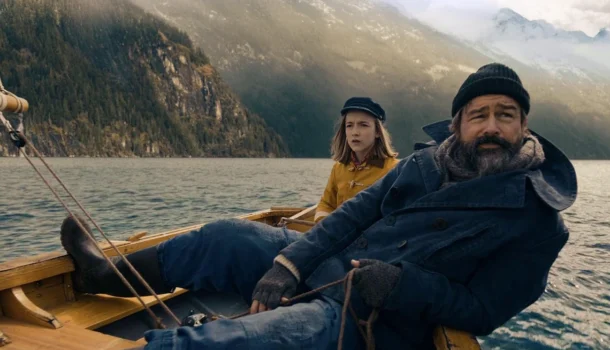From the moment one recognizes oneself as a subject in the world, the human being is driven by a restlessness that propels them: the pursuit of a form of beauty that can make the chaos of existence bearable. This aesthetic impulse is not limited to what the senses can grasp — it insinuates itself in the margins of daily life, in symbols, in what has yet to be named. We live at the mercy of illusions, for the concrete world is rarely enough. And in this attempt to assign meaning to the ordinary, we make of reality an unstable platform where the banal can, with surprising frequency, give way to enchantment. We idealize people, attach meanings to places, invest fragile ideas with hope. But the more we entrench ourselves in unfulfilled desires, the further we drift from the only space where life truly happens: the present. Still, to forgo dreaming would be a mutilation of the soul — for it is in this oneiric movement that our most radically human essence resides.
To fantasize is more than a fleeting relief; it is a survival strategy in the face of brutal disappointments. When the world becomes heavy, it is through suspending reality that we rise again. Some escape, some reinvent themselves, and others rebuild their ruins by imagining new ways of being in the world. Each, in their own way, constructs parallel worlds — be they utopias, delusions, or projections of a more just life. That is why dreams are never innocent: they challenge the limits imposed by logic and offer escape routes that often work as blueprints for salvation. Our most intimate delusions intertwine with distant memories, resurfacing with the force of a reunion — with those who are gone or with versions of ourselves we thought buried. To dream is, therefore, to reopen wounds and possibilities.
In this territory where reverie and memory intersect, cinema finds fertile ground. Francis Lawrence understands this symbiosis well and explores it with sensitivity. Known for crafting dystopian worlds in “The Hunger Games”, he now opts for a gentler — but no less provocative — dive into “Slumberland” (2022). Without abandoning his fascination with alternative realities, Lawrence builds a narrative where collapse does not manifest through rebellion or structural oppression, but in the small pains of childhood, the absences that shape affections, and the need to forge intimate escapes where one can finally breathe.
The protagonist, Nemo, carries a name steeped in references to adventure and journey — from Verne to animated cinema. Living in a lighthouse with her father, a figure of authority and affection, she watches her world fall apart. What unfolds from this is a coming-of-age tale that evokes the fable logic of “Alice in Wonderland”. But here, it is not reason that unravels — it is emotional ground. Jason Momoa brings to life Flip, a chaotic and charismatic figure who guides Nemo through a world where dreams serve as shortcuts through grief. It is in Slumberland that she faces her father’s absence, the coldness of a new home, and affections caught in limbo, embodied by her uncle Phillip, whose rigidity conceals deep vulnerability.
Lawrence shapes his narrative with visual refinement that never overshadows emotion. Each scene in which Nemo drifts between dimensions is layered with meaning that goes beyond aesthetics: they are performances of the unconscious, metaphors of loss and reconciliation. The mystery surrounding Flip is more than a narrative device; it reveals that, beneath fantasy, there is always an unresolved trauma. In the scene where everything becomes clear, the viewer receives not just an answer, but a question: what do we lose when we stop dreaming? “Slumberland” does not seek easy comfort. It offers itself as a delicate fable on the ambiguities of affection — and the certainty that even the most fragile bonds can be renewed in the spaces where reality and imagination intertwine.
Film: Slumberland
Director: Francis Lawrence
Year: 2022
Genres: Fantasy/Adventure
Rating: 9/10

